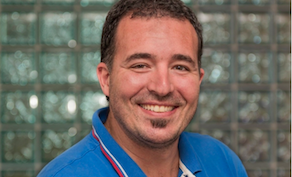Professor Pedro Pablo Escobar, who is chairing CAIS 2013 together with Alejandro Viegas Palermo, spoke to E-Health Reporter Latin America to preview the new edition of the congress, which will be held between the 18th and 20th of September at the Universidad Nacional de Córdoba.
The objective of this year’s congress is to bring together experiences from the public, private and academic sectors. What are you seeking to achieve by working together?
Working together helps us to achieve the most important step in the area of Health IT: an omnipresent, unified electronic health record. This would provide access to individual and collective health information to all the actors involved, wherever they are. And the need to bring together experiences arises because essentially our efforts to advance toward digital health are currently isolated and neither the objectives nor the results are shared even though this would reduce development and implementation times and costs.
What is needed to achieve a union between the different health sectors?
Initially it only requires will and communication. The former is very dependent on people and institutions. The latter depends on the promotion of the activities that each group is carrying out. CAIS has for several years played an important role in efforts at communication, being the standard bearers for the promotion of work linked to Health IT and trying to propose two very clear paths to follow: education and unification of efforts. If I develop something that could help you, let’s make it so that it helps both of us, let’s share, improve and advance with it. The more activities related to promotion and linking together we can carry out, the closer we’ll be to achieving a real partnership between the different actors in the health sector.
What innovations will attendees find at the Congress this year?
Firstly, we have presented a better defined CAIS with regard to the list of issues to be addressed, innovations include the major presence of state speakers, from both provincial and national levels, who will be gathered for the entire event. This presence is unprecedented compared to previous events and shows how the concept of digital health has gained in importance in governmental agendas. Finally we will have a track dedicated to education in medical IT, which will be capped with a debate and exchange of ideas with regard to the need to educate and train professionals in the area.
Why have you decided to include countries such as Canada, Uruguay, Brazil and Cuba?
For one thing because we share the same problem. Recent history has shown us that national borders and checks don’t stop diseases. This was the case with emerging and re-emerging epidemics such as Swine Flu, tuberculosis and evens AIDS/HIV. Also because it is important to see the emphases different countries have placed when managing digital formats in Health IT. Sometimes a European or American solution has local cultural components that are difficult to transfer and cannot be directly applied.
In this edition Dr. Gabriel Yedlin, the Secretary of Policies, Regulation and Institutes at the Ministry of Health, will be present. How do you see the national development of Health IT?
The national government is starting to define the major issues, but it is still in the early stages. In other areas such as the judiciary and commerce, it has already made great strides in the use of digital signatures for certification and identification of the actors involved in each process. In Healthcare, digital signatures are still awaiting approval in the chambers of congress. The presence of the relevant government authorities is promising and vital to assessing the future, the possibilities of application and the time it will take to make these changes.
One of the issues that will be explored at CAIS 2013 is the need to teach Health IT in undergraduate courses. How important is a good education in that area
Currently, with regard to the quality of education in Health IT, we are more than five years behind, but five years ago there was nothing at all. Today, we all depend on IT of some kind throughout the world and in almost every profession. So: shouldn’t something that is part of the essential training for a profession should be taught in undergraduate courses as part of a professional degree? This debate is very extensive and there are many different points of view, but they don’t differ too much. We still need to make progress in the design of a basic curriculum in which we can all agree on the fundamental nucleus that can then branch out into other areas. This is where we are trying to contribute with our efforts and willpower because with our accumulated experience in education we believe that the creation of alternatives in professional training Health ICT is sorely needed.

